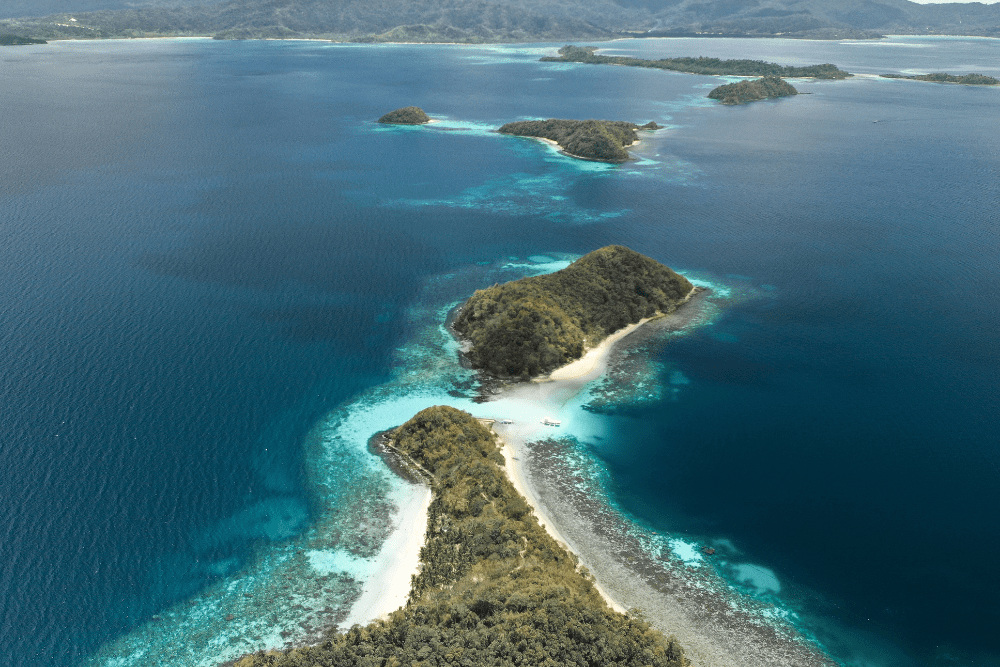The “cold tongue” is an island of coolness in the Pacific Ocean off the coast of Ecuador. The only part of the world’s oceans to cool, it is a real mystery that could play a decisive role in climate change.

The oceans are warming due to climate change: that’s what scientists have been telling us for years. While the Mediterranean Sea and the North Atlantic set absolute records for warmth, an anomaly persists: an area of the Pacific Ocean which, against all logic, is cooling. And has been for the last thirty years. A real mystery, even described as “the most important unanswered question in the field of climatology” by University of Colorado specialist Pedro DiNezio, interviewed by the media outlet New Scientist, which devotes an article to “the cold tongue” of the Pacific.
The latter, which was detected in the 1990s and extends over several thousand kilometers. For a long time, it was attributed to the extreme natural variability of the region: it is the largest and deepest ocean on the planet, which has always been much cooler (5 to 6°C) East side, either the West coast of the Americas on the Asia side, than on the West side. But other scientists, such as Richard Seager of Columbia University in New York, have demonstrated that this gradual cooling was not necessarily natural, and that it could be due to other, still unknown, phenomena linked to the ‘human activity. The problem is there: this cold tongue is losing degrees (0.5°C in 40 years) and we still don’t know why, even though we’ve been seeing it for 30 years. Except that this phenomenon could have serious consequences, which current climate models do not take into account, as reported by the scientific media.
The trouble is that not knowing why this cooling is happening means we also don’t know when it will stop, or whether it will suddenly flip over into warming. This has global implications. The future of the cold tongue could determine whether California is gripped by permanent drought or Australia by ever-deadlier wildfires. It influences the intensity of monsoon season in India and the chances of famine in the Horn of Africa. It could even alter the extent of climate change globally by tweaking how sensitive Earth’s atmosphere is to rising greenhouse gas emissions.
Given all this, it isn’t surprising that climate scientists are trying to find out what is going on with increasing urgency.
The Pacific, larger than all land areas
The Pacific Ocean remains very mysterious, it is the largest and deepest ocean on the planet – it is so vast that it covers a larger area than all land combined. The great natural variations of the climate of the tropical Pacific influence the weather of the whole world, knowing how it will react to the increase in emissions of greenhouse gases in the atmosphere is a major challenge.
About every three to five years, the Pacific goes from a La Niña episode, with relatively cool water surface temperatures in the equatorial zone, to an El Niño episode, where these waters warm more than normal. This cycle, referred to as the El Niño Southern Oscillation, or ENSO, is caused by changes in ocean wind patterns and the movement of water from the colder ocean floor to the warmer surface.


To which is added the Pacific decadal oscillation (PDO), a variation in sea surface temperature over a period of 20 to 30 years, the exact origin of which remains undetermined, and whose effects are similar to those of ENSO

The mechanism that causes PDO. is not yet well understood. It has been suggested that the thin upper layer that warms in summer over the ocean insulates the colder water at depth and that it takes years to rise.
The effects of cold and warm phases are identifiable in the climate of North America. Between 1900 and 1925, during a cold phase, annual temperatures were relatively low. During the following thirty years and a warm phase, temperatures were milder. The cycle was verified each time thereafter
These variations complicate the calculation of long-term trends. This is why, when they detected this “cold tongue” phenomenon in the 1990s, researchers attributed its existence to the extreme (but natural) variability of the region.





